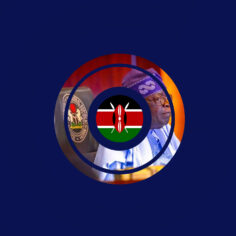
Hello, and welcome to this week’s edition of Compliance Updates. We are thrilled to bring you the most recent compliance developments from around the world. Our team of experts has carefully researched and curated the most relevant news for you. Stay tuned and enjoy the latest updates!
Kenya announces new tax amnesty guidelines for interest and penalties.

Kenya has introduced a tax amnesty through the Finance Act 2023, providing relief for individuals with penalties and interest but no principal taxes owed for periods up to December 31, 2022. The amnesty also applies to those who pay their outstanding principal tax debt by June 30, 2024.
The guidelines specify eligibility, exclusions, effective dates, and tax liabilities involved, emphasizing that only interest and penalties related to principal taxes up to December 31, 2022, are eligible for remission upon full payment of the principal tax by June 30, 2024. The tax amnesty began on September 1, 2023, and will run until June 30, 2024.
This new amnesty provides a great opportunity for individuals to clear their tax debts and start fresh. It is a welcome relief for many who may have been struggling to pay their taxes for various reasons. With the amnesty now in place, individuals can focus on other things, knowing they have fulfilled their tax obligations.
Rwanda secures a $262 million IMF stand-by facility for economic growth.

Rwanda receives a $262 million IMF Stand-by Credit Facility to tackle climate shocks and fuel economic growth. The facility comes at a critical time as the country faces challenges brought about by the pandemic, repeated droughts, and severe floods.
The IMF mission to Rwanda successfully agreed on policies needed to complete the second review of an existing Policy Coordination Instrument and a programme under the Resilience and Sustainability Facility. The IMF board is set to review the agreements in December, marking a significant milestone for Rwanda.
Rwanda can undertake flood-related reconstruction efforts with the new facility and adapt to climate change. The country is committed to reducing inflation and maintaining a flexible exchange market to support economic growth.
This significantly boosts Rwanda’s economy, and the country is well-positioned to leverage the facility to fuel its growth and development.
US Takes Strong Stand: Gabon, Niger, Uganda, and Central African Republic to be Evicted from Trade Program.

In a bold move, U.S. President Joe Biden has announced the termination of Gabon, Niger, Uganda, and the Central African Republic’s participation in the African Growth and Opportunity Act (AGOA) trade program. The decision comes amid concerns about gross human rights violations in the Central African Republic and Uganda, as well as the failure of Gabon and Niger to uphold political pluralism and the rule of law.
Biden’s decision will take effect on January 1, 2024, and he has pledged to continue assessing whether these countries meet the program’s eligibility requirements. The AGOA program, which grants duty-free access to the U.S. market for qualifying countries, is set to expire in September 2025.
African governments and industry groups are calling for a 10-year extension of AGOA without changes to encourage new investors and reassure businesses.
Uganda Implements 5% Digital Services Tax: Non-Compliance Could Lead to 15% Withholding Tax.

The Ugandan tax authority has published a public notice implementing the 5% digital services tax (DST) that came into effect on July 1, 2023. Non-residents earning income from digital services provided to customers in Uganda must register through the Uganda Revenue Authority (URA) website, with failure to register potentially resulting in a 15% withholding tax.
The DST applies to various digital services, including online advertising services, data services, and services delivered through social media platforms or internet search engines. The tax authority has emphasized voluntary compliance, but non-residents providing digital services in Uganda should be aware that even a single sale within the jurisdiction could trigger tax obligations.
Uganda’s implementation of the DST and VAT digital services rules reflects a global trend of jurisdictions increasing their enforcement of taxes on cross-border digital services. Non-residents already registered for the VAT digital services rules will be automatically registered for the DST, but should still monitor their accounts to ensure compliance.
Thank you for joining us for this week’s Global Compliance Updates. We hope you found the latest developments from around the world informative and useful. From Kenya’s new tax amnesty guidelines and Rwanda’s IMF stand-by facility to the US’s strong stance on the AGOA trade program and Uganda’s implementation of the digital services tax, it’s clear that compliance is a top priority for governments and businesses alike. Stay tuned for more compliance updates by visiting our website, and remember to stay compliant!
Last modified: March 27, 2024




